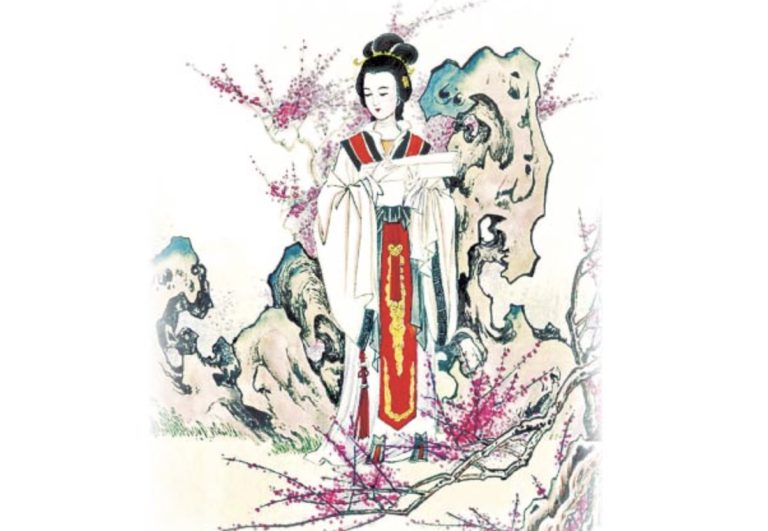In ancient China, women were educated and raised to uphold a range of traditional values, which could be summed up as virtue (德), righteousness (義), propriety (禮), benevolence (仁), and trustworthiness (信).
From noblewomen to commoners, many women of ancient China left their names in history for embodying these timeless values. A few of their stories are as follows.
Virtue: Ban Zhao’s ‘Precepts for Women’
The concept of virtue, pronounced de (德) in Chinese, includes morality, kindness, elevation, and blessing. Being virtuous is about being kind and righteous, aboveboard, and pure.
Ban Zhao (班昭) was a talented female scholar in the Eastern Han period (25–220 AD) who came from a family of historians. These included her father Ban Biao and elder brother Ban Gu. Always the loving and caring little sister in the household, Ban Zhao married at the age of 14, but her husband died when she was still young. She never remarried and devoted her life to literature and the education of her son.
Because of Ban Zhao’s talents and reputation as a virtuous woman, she was often called to the imperial palace by the emperor to tutor the empress and imperial concubines to enrich their knowledge and character.
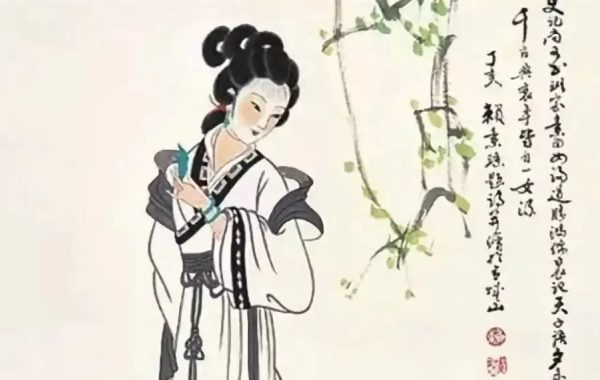
Success
You are now signed up for our newsletter
Success
Check your email to complete sign up
In her later years, Ban Zhao wrote the seven-chapter Precepts for Women (女誡) as a guide for women’s moral education, a highly influential text for the next 2,000 years.
She believed that women should cultivate humility and self-restraint in life. Being cultured and well-educated, they would be able to handle well all family relationships in their households, as well as raise the next generation to be virtuous and upstanding.
BAN ZHAO’S PRECEPTS FOR WOMEN
- Part I: Cultivating Modesty and Gentleness
- Part II: Cultivating Politeness and Hospitality
- Part III: On Being a Devoted Wife
- Part IV: On Early Rising
- Part V: On the Instruction of Children
- Part VI: On Reverence for Parents and In-Laws
Righteousness: Diaochan’s selfless sacrifice in removing the tyrant Dong Zhuo
The character “yi” (義) encompasses the principles of justice, ethics, and righteousness. It is often used in reference to brave deeds in the face of evil.
Diaochan (貂蟬), a character from the Three Kingdoms era, is known as one of the Four Beauties of ancient China. She played a key role in overthrowing the cruel despot Dong Zhuo.
Dong Zhuo was a warlord and a tyrannical chancellor of the imperial court in the later Eastern Han period. He deposed Emperor Shao and replaced him with his half-brother (the puppet Emperor Xian) and killed everyone who spoke up against him, throwing the Han court into chaos.
To save the Han court, a high-ranking court official named Wang Yun entrusted his adopted daughter Diaochan to assist in a scheme to get rid of Dong Zhuo.
Diaochan was extremely beautiful and a talented singer and dancer, more importantly, she also had a righteous mind and strong will. To save the Han court, she endured humiliation and self-sacrifice by showing “affection” to both Dong Zhuo and his adopted son Lü Bu to sow discord between the two. Lü Bu eventually killed Dong Zhuo out of jealousy, ending the dark period of his tyranny.
The story of Diaochan, who became a femme fatale for a just cause, was made famous by the novel Romance of the Three Kingdoms.
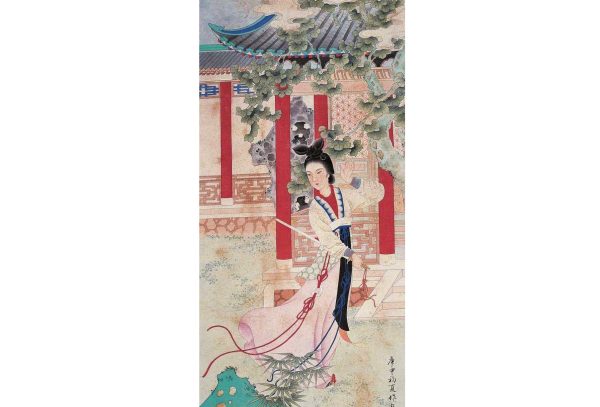
Propriety: Liang Hong and His Wife Meng Guang
The third virtue, li, (禮) is defined as propriety or rites. According to the Book of Rites (禮記), the core of li is respect and humility. Respect manifests propriety, which leads to harmony.
While elaborate displays of ritual might be popularly associated with the wealthy upper class, in fact li can be practiced by anyone, as shown by the example of Liang Hong and his wife Meng Guang.
- Understanding the Chinese Calendar in 2024 and Welcoming the Year of the Dragon
- ‘Men Respectful, Women Humble’: The Truth About a Traditional Chinese Idiom
Liang Hong, a well-educated scholar, and his wife Meng Guang, lived in seclusion in the remote countryside. Despite this, they maintained a strong sense of morality and paid great attention to etiquette in their daily life.
Once, even when staying with a wealthy family, the couple lived frugally and simply. During meals, Meng Guang would serve her husband by holding the tray to the level of her eyebrows to show her respect. Liang Hong would humbly take the tray with both hands to express his gratitude to his wife before the two sat down to eat.
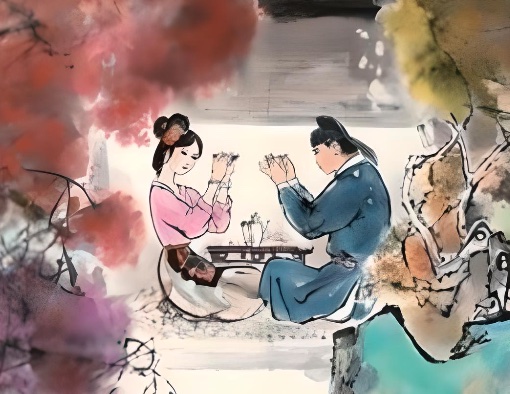
The people in that household were very impressed by their conduct. Their story spread far and wide and was recorded in the History of the Later Han Dynasty. The words ju an qi mei (舉案齊眉, Holding the tray level with the brows) became a well-known idiom to describe mutual respect and love between husband and wife.
Meng Guang was honored as one of the four plain yet virtuous ladies of ancient China.
Benevolence: Empress Zhangsun’s Boundless Magnanimity
The concept of ren (仁), or benevolence. embodies kindness and consideration for others. The Chinese word consists of the characters 人 (human) and 二 (two), symbolizing the good relations between multiple people.
Empress Zhangsun of the early Tang Dynasty (618–907) was born into an aristocratic family and enjoyed a traditional education in her childhood. She was known for being knowledgeable, gentle and virtuous, upright and kind.
At the age of 13, she married 17-year-old Li Shimin, the second son of Taiyuan governor Li Yuan. Soon after the establishment of the Tang empire, Li Shimin became Emperor Taizong, one of the greatest rulers of ancient China.
As a noblewoman and later empress, Zhangsun lived by a woman’s ethics, taking great care in serving her parents-in-law, looking after the emperor, and educating their children.
- Emperor Taizong of Tang and His Faithful Advisors
- Lady Fuca: Qing China’s Most Virtuous Empress and a Ruler’s Rare True Love
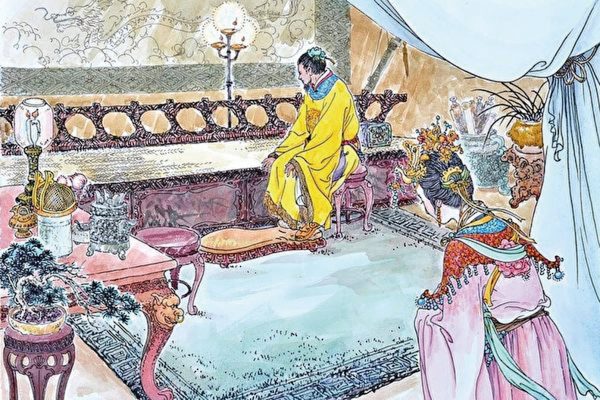
When Li Shimin was fighting on the battlefields, Zhangsun traveled with the army everywhere to take care of her husband. After her husband assumed the throne, she continued to respect and diligently serve her father-in-law (the former emperor) as an ordinary daughter-in-law. She also made it her responsibility to manage the inner court, bringing order and harmony to the imperial harem.
Empress Zhangsun lived a simple and frugal life and was very benevolent and broadminded toward others. When the emperor asked her opinions on state affairs, she always refrained by following the traditional principle that she should not interfere in state affairs, and only reminded the emperor to “be prepared for danger in times of peace” and to “appoint virtuous officials and accept sound advice.” Her virtuous words and deeds won the great respect of the emperor and set an example as a good wife and a great empress.
Trustworthiness: Wang Baochuan waits for her husband
Trustworthiness or faith, called xin (信) in Chinese, means being truthful and honest, having faith in others, and living up to one’s word.
According to a dramatized account based on true events from the Tang Dynasty, Wang Baochuan (王寶釧) was the daughter of a prime minister. She chose to marry Xue Pinggui, a man of humble origins, by throwing an embroidery ball to him on the day of her betrothal.
Her father was against the marriage, and when Wang Baochuan insisted, he disowned her and her groom.
Despite living in a cold and shabby cave-dwelling Wang Baochuan and Xue Pinggui loved each other very much and enjoyed a happy life together. To help her husband achieve his aspirations, Wang Baochuan encouraged him to join the army. Her husband went on faraway campaigns for many years and achieved greatness through his service.
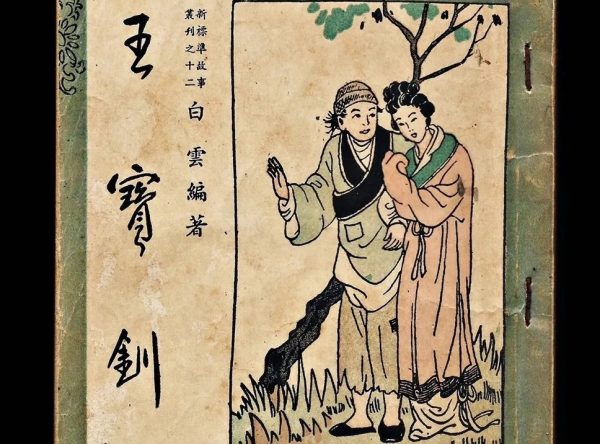
For 18 years, Wang Baochuan continued to live alone in the same cave dwelling while enduring hunger, cold, and loneliness. Despite hearing no word from her husband, her enduring love for him gave her faith that they would one day be reunited.
Her unshakable faith enabled her to pull through the lonely years and hardships. Indeed, her husband returned at long last and they spent the rest of their lives together with much happiness and joy.



